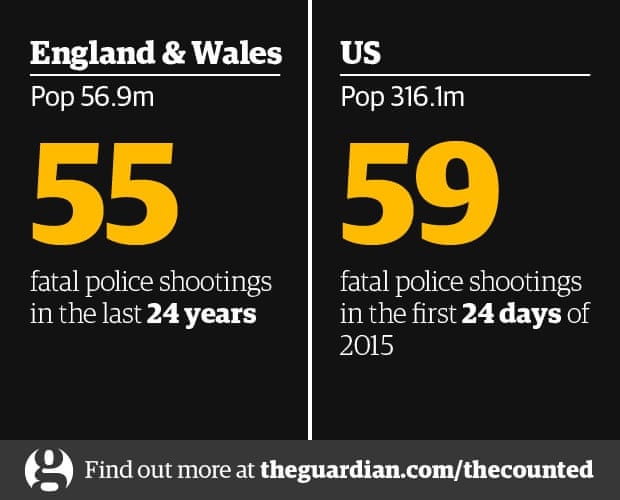Debating data and racial bias
Since Grits contributing writer Amanda Woog offered her take on the New York Times coverage of this new study on racial bias in police use of force, let's mention two other significant critiques of that analysis: A Vox reporter who's covered the issue showed that the findings were quite narrow. And Grits was interested to see this sociologist place the research in context of other related findings. That said, as I opined about the study in the comments, "The portion based on the Houston material IMO is most dubious. But it also included important findings related to lower-level use of force that remain undisturbed by either Amanda's critique or the others." MORE: Economist Rajiv Sethi offered a critique of the study's Houston findings. See also an analysis at Chicago magazine, which referred us to this useful 2007 study on the question of whether crime rates among black folks explain their disproportionate prevalence among police stops. (Spoiler: They do not.)
Save police lives by limiting pursuits
On the same day a Bellaire motorcycle officer died in an accident during a pursuit, the Houston PD announced deployment of GPS tracker darts which can be used by a pursuing cruiser during a chase. Houston PD "averages two high-speed chases per day," according to the Chronicle. As long-time Grits readers are aware, despite the terrible events of the last week, most police officer deaths result from traffic accidents, not felonious shootings. In 2009, the Texas Senate Criminal Justice Committee issued a report (see interim charge 5, p. 58 of pdf) on the causes of preventable police officer deaths and ways to prevent them. That report pinned the largest risk to police officers' lives on the fact that they spend so much time in cars: "Policing remains a dangerous profession and our delivery method of this public service by automobile is the largest contributor to accidental deaths in Texas and across the nation."
The case for (limited) bipartisanship on police shootings
Some conservatives say their movement can find slices of common ground with Black Lives Matter:
- National Review: Finding common ground with Black Lives Matter
- Time: The GOP can lead on criminal justice reform - if we admit inequality exists
- Breitbart: My weekend incarceration in a Baton Rouge prison (with BLM protesters)
According to The Guardian, which has been counting police shootings in America, more people were killed by police in the United States in the first 24 days in 2015 than in all of England and Wales in the prior 24 years.
From those data, Grits estimates* that England and Wales see their cops shoot about one-quarter of one-percent (0.26%) as many people as their counterparts in America, even though their population is 18% the size of the United States - in fact, around twice the size of Texas, whose police shootings also vastly outnumber theirs.
* Estimate methodology: Multiply 59 times 1.25 to get a one-month average, times 12 to get a one-year estimate, and times 24 to match the Eng/Wales comparison. Then divide that into 55, the number of police shootings in England and Wales, to get the 0.26% figure.

Not totally buying Hirshman's take on Fryer. As I said on his site:
ReplyDelete"Getting stopped" is different than "getting shot." Yes, there’s greater likelihood of getting stopped means that you have more likelihood of getting shot **just because you're stopped more often.** BUT, that's not what Fryer was discussing AND he made that clear.
He clearly said that, simply comparing cases once they got to a point of shooting, there was no difference.
Per left-liberal commenter Doug Henwood, I think in some cases of critiques, we're seeing "white liberal guilt" partially at work. Take the evidence as it stands and deal with it from there. And as a left-liberal of sorts myself, I "get" what Doug means.
The question under debate, Gadfly, is whether that's the point at which comparison is most probative. Comparing one point where one finds no discrimination while ignoring the points where one does doesn't necessarily lead to the most useful analysis.
ReplyDeleteScott, I noticed yesterday that in the case of the Bellaire cop you mentioned who died as a result of a traffic accident the two delinquents that he was pursuing are being charged with felony murder. This seems wholly reaching and unnecessary as the cop died of a typical motorcycle accident. I am aware of the law that demands that when one commits a felony (running from the police) if anyone dies as a result of that felony, the one that committed the underlying felony can be held legally responsible for the death as well (which makes perfect sense in a bank robbery) but going to a capital murder conviction (because police officers are first caste more important citizens according to the state) seems very far reaching. I to this date cannot understand how the life of a police officer is more important than the life of a plumber or chef and why they are not treated equally under the law.
ReplyDeleteWith ref to the Guardian's stats, I really think you should only compare a single US state to the UK figures, not the whole of the US. But equally you could compare any other European (we still are at the moment!) country with any US state, and probably find that TX police still shoot more citizens.
ReplyDelete